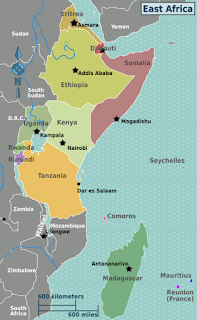I have developed a
recital that will be performed in China in late November, then in Norway in early
December, 2024. It is in collaboration with a highly skilled Hong Kong-based pianist Dr.
Philbert King-yue Li.
Below are a few details
about the concept and program for Classic Songs of Boundless Love:
It has often been
said that love knows no boundaries, but today parts of the world are torn by
the violence of war. This presentation uses masterful art songs to illustrate shared
human values that persist despite conflict. The recent Olympic Games in Paris,
France, highlight how diplomacy can triumph, and this selection of classic songs
by notable twentieth century composers—in France, the US, Russia, Japan and
China—demonstrates a collective sentiment shared worldwide: Whether romantic
love, love for an infant, or love of nature and one’s homeland, it is this
profound feeling that guides all people toward mutual appreciation and treating
each other with compassion and kindness. Dr. Hebert has worked as a music
professor in each of the places discussed, and through the lecture connects
each song to both cultural history and his personal writings and experiences in
each location.
PROGRAM of SONGS
• Francis Poulenc (France): “Invocation aux Parques” and “Serenade”
• Samuel Barber (USA): “Sure on this Shining Night” and “Rain Has Fallen”
• Yoshimatsu Takashi (Japan): Pleiades Dances VI, op.71
• Sergei Rachmaninov (Russia): “Child, You are Beautiful Like a Flower” (Op.8 No.2) and “In the Mysterious Silence of the Night” (Op.4 No.3).
• Robert Schumann (Germany): Selections from “Kinderszenen”, Op. 15
• Huang Tzu (China): “Mei Gui San Yuan” (Three Wishes from a Rose)
• Leung Chi-hin (China): “Thoughts of Separation”
Possible encores:
• Song of the Yue Boatman (traditional, China)
• Lu Zayi (China): “Wang Xiang Ci” (Musing on My Native Land)
• Jerome Kern and Oscar Hammerstein: Ol’ Man River (USA)
Biographies:
David G. Hebert, PhD is a full Professor of Music with Western Norway
University of Applied Sciences and Honorary Professor with the Education
University of Hong Kong. A widely published and cited researcher, he has also
held positions with universities in the USA, Finland, Japan, Russia, Brazil, China,
Uganda, Faroe Islands, and New Zealand, and has directed research projects on each
inhabited continent. He serves on the Executive Council and Board of the
International Society for Music Education.
Dr. Hebert’s writings appear in over 30 different
professional journals, and he is author or editor of ten books, including such
titles as Advancing Music Education in Northern Europe, Teaching World Music
in Higher Education, Ethnomusicology and Cultural Diplomacy, Comparative and
Decolonial Studies in Philosophy of Education, Theory and Method in Historical Ethnomusicology, and Music Glocalization: Heritage and Innovation
in a Digital Age.
Dr. Philbert
King-yue Li is a Lecturer
with the Education University of Hong Kong. A native of Hong Kong, he holds a
Doctor of Musical Arts degree in piano performance from Arizona State
University in the United States. He has performed at the American Liszt Society
Festival and was a prize winner at the 2019 Monegrarte International Piano
Competition and 2020 Putra International Piano Competition. Dr. LI has given
performances in many countries, including the United States, Russia, Spain,
Germany, Belgium, and China, and in early November 2024, he is touring
Southeast Asia.
Below are posters from our recent 4-city tour in China:
Click HERE and HERE for recent videos.












.jpg)

















 https://orcid.org/0009-0002-1446-3893
https://orcid.org/0009-0002-1446-3893























